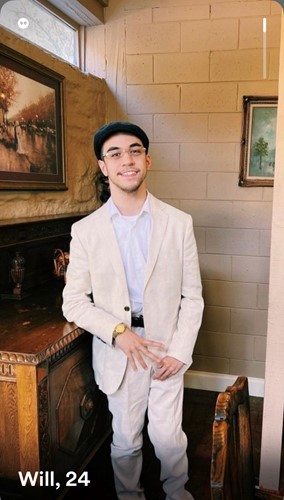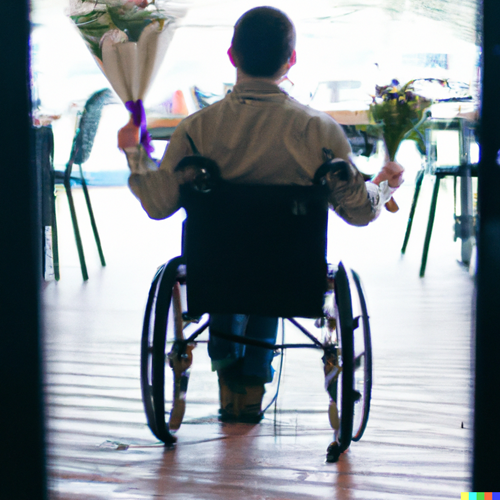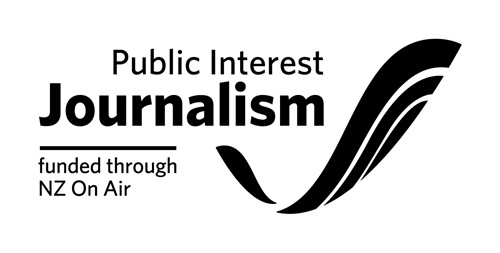These artificial recreations are not a true reflection of the dating experience for most of us in the disabled community. The allure of apps like Tinder and Bumble is strong, particularly for a demographic that may face physical or intellectual barriers accessing traditional locations to meet people like bars. Disabled people now have the autonomy to put themselves out there in any way that they want. Whether you should disclose your disability or not is a contentious issue, one that Attitude seeks to explore. Is it in your best interest or are you closing doors before they even had a chance to open?
An informal poll of the Attitude office resulted in an even split. There were even whispers of “catfishing” (the practice of pretending to be something you’re not online for personal gain).
Is it deceitful to hide a part of yourself that any future romantic partner is certainly going to find out about? Maybe, but the issue is not black and white.
Disclosure
Disclosure is revealing that you have a disability. It can happen via private messages after you match, or it can be evident through your photos / directly addressed in your bio on your profile.
Attitude spoke to Digital Producer Will Sangster and Screenwriter Julia Reynolds to get their take on the issue. Both are under 30, have lived experience of disability and are looking for love.
Will lives with Cerebral Palsy (a disability caused by the brain being deprived of oxygen at birth). He's a Tinder Gold member. He's also a supporter of disclosure. Will's photos are unedited. What you see is what you get. Most people can't tell he's disabled from a photo. "My bio doesn't mention CP but it also doesn't mention my weight or height. CP is just one element of who I am." He usually informs potential partners of his disability before they meet via messages on the app. "I feel that disclosure before meeting in person is important, but it doesn't need to be spelled out in my profile. When I feel ready, then I'll open up."


Julia has Spina Bifida (a condition where the spinal column and associated nerve function is damaged) and is a wheelchair user. She’s not currently active on the apps but has dabbled with Tinder and Bumble. “From past experience I can almost guarantee that with the wheelchair I’ll get half as many matches compared to if I post photos without." She knows that those who disregard the chair are likely to me more genuine, but if you’ve only got one match you’re not giving yourself any options. “I don’t even tell them until we meet. Then I can see the judgement or lack of judgement occur in real time."
The expert opinion
NZ relationship counsellor Allison Huffman says it depends on your intentions.
“For a longer term, genuine relationship, I would strongly advise being upfront about disability right from the beginning. Even within the bio on a dating app or by providing images that are raw and unedited. People who don’t accept you as you are will not match. Those who do will be truly willing to give you a chance. If there’s no spark or the relationship doesn’t eventuate, don’t blame it on your disability. Move on and try again.
For a short term arrangement (one night stand) you may be better off not revealing your disability until you meet. Be aware though that people may be disappointed when you meet in person due to your decision to hide something so important.”

 What the apps say
What the apps say
Tinder
"Tinder is inherently diverse and everyone is welcome. Tinder is often the first place people feel comfortable truly being themselves. People really trust us with this level of vulnerability. Discrimination of any kind will not be tolerated on Tinder."
Tinder Media Spokesperson - Fiona Dole
Bumble
"Having a disability doesn’t mean you need to shy away from the dating world. In fact, it can be an asset when showcasing your disability on your Bumble profile. By being open and honest about who you are and what makes you unique, you give potential partners an understanding of how amazing you really are, and an insight into your life and authenticity.
Being upfront at the beginning shows that while having a disability is part of who you are – it isn't the only thing that defines who you are as a person. There are unique perspectives that come with your disability, such as a deep understanding of empathy and compassion, or a creative approach to problem-solving. This allows potential partners to understand that having a disability doesn't limit your life but expands it.
On Bumble we explicitly ban unsolicited and derogatory comments made about someone’s appearance, body shape, size or health. This includes language that can be deemed ableist. So if this is something you have experienced, don't feel shy in reporting someone".
Bumble’s New Zealand/Australia Sexologist - Chantelle Otten
The consensus
Human nature is complex. We don’t like being deceived but we can be judgemental. Disability acceptance has a long way to go in a society that is obsessed with what we look like. Try disclosure one week and non-disclosure the next. Find out what works for you. There’s a lot of pressure today to be proud of your differences and not care what others think, but not everyone’s there yet, and that’s totally fine.




